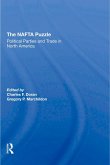Political scientists have worried about declining levels of citizens' support for their regimes (legitimacy), but have failed to empirically link this decline to the survival or breakdown of democracy. This apparent paradox is the 'legitimacy puzzle', which this book addresses by examining political legitimacy's structure, sources, and effects. With exhaustive empirical analysis of high-quality survey data from eight Latin American nations, it confirms that legitimacy exists as multiple, distinct dimensions. It finds that one's position in society, education, knowledge, information, and experiences shape legitimacy norms. Contrary to expectations, however, citizens who are unhappy with their government's performance do not drop out of politics or resort mainly to destabilizing protest. Rather, the disaffected citizens of these Latin American democracies participate at high rates in conventional politics and in such alternative arenas as communal improvement and civil society. And despite regime performance problems, citizen support for democracy remains high.
Dieser Download kann aus rechtlichen Gründen nur mit Rechnungsadresse in A, B, BG, CY, CZ, D, DK, EW, E, FIN, F, GR, HR, H, IRL, I, LT, L, LR, M, NL, PL, P, R, S, SLO, SK ausgeliefert werden.









